People often criticize the amount of money spent on space exploration. Sometimes it’s well-meaning friends and family who say that that money is wasted, and would be better spent on solving problems here on Earth. In fact, that’s a whole cultural meme. You see it played out over and over in the comments section whenever mainstream media covers a space story.
While solving problems here on Earth is noble, and the right thing to do, it’s worth pointing out that the premier space exploration body on Earth, NASA, actually has a tiny budget. When you compare NASA’s budget to what people spend on cigarettes, NASA looks pretty good.
Ignoring for the moment the fact that we don’t know how to solve all the problems here on Earth, let’s look at NASA’s budget over the years, and compare it to something that is truly a waste of money: cigarettes and tobacco.
NASA is over 50 years old. In its first year, its budget was $89 million. (That’s about $732 million in today’s dollars.) In that same year, Americans spent about $6 billion on cigarettes and tobacco.
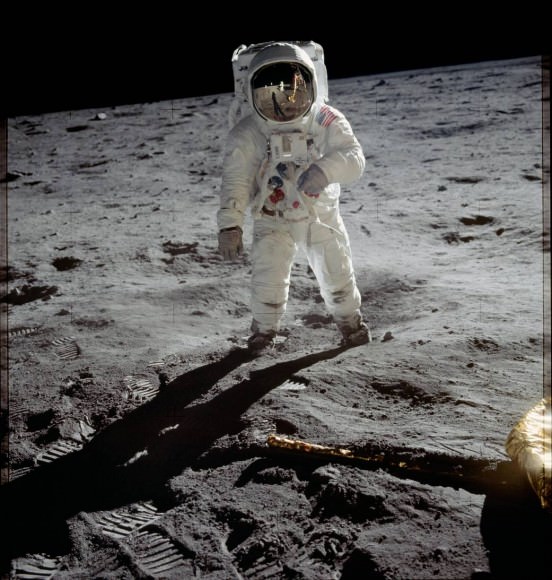
From 1969 to 1972, NASA’s Apollo Program landed 12 men on the Moon. They won the Space Race and established a moment that will echo through the ages, no matter what else humanity does: the first human footsteps anywhere other than Earth. In those four years, NASA’s combined budget was $14.8 billion. In that same time period, Americans spent over twice as much—$32 billion—on smoking.
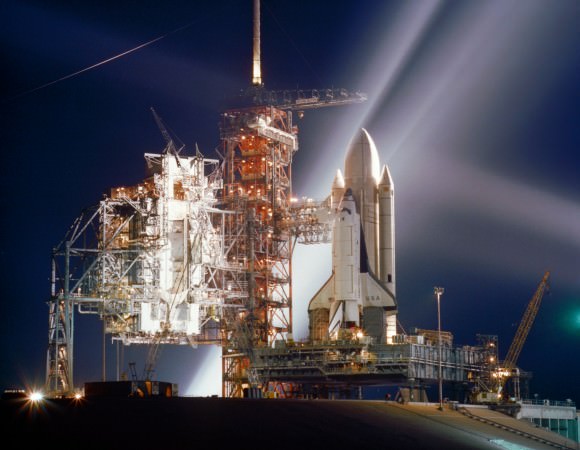
In 1981, NASA launched its first space shuttle, the Columbia (STS-1). NASA’s budget that year was $5.5 billion. That same year, the American population spent about $17.4 billion on tobacco. That’s three times NASA’s budget. How many more shuttle flights could there have been? How much more science?
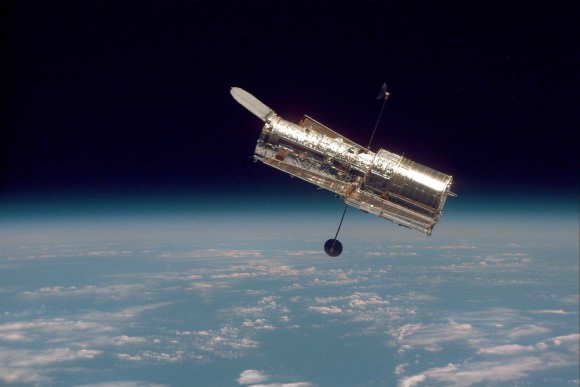
In 1990, NASA launched the Hubble Space Telescope into Low Earth Orbit (LEO.) The Hubble has been called the most successful science project in history, and Universe Today readers probably don’t need to be told why. The Hubble is responsible for a laundry list of discoveries and observations, and has engaged millions of people around the world in space science and discovery. In that year, NASA had a budget of $12.4 billion. And smoking? In 1990, Americans smoked their way through $26.5 billion of tobacco.
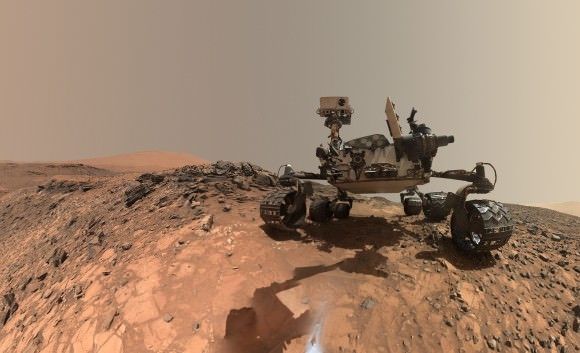
In 2012, NASA had a budget of $16.8 billion. In that year, NASA successfully landed the Mars Science Laboratory (MSL) Curiosity on Mars, at a cost of $2.5 billion. Also that year, American lungs processed $44 billion worth of tobacco. That’s the equivalent of 17 Curiosity rovers!
There was an enormous scientific debate around where Curiosity should land, in order to maximize the science. Scientific teams competed to have their site chosen, and eventually the Gale Crater was selected as the most promising site. Gale is a meteor crater, and was chosen because it shows signs of running water, as well as evidence of layered geology including clays and minerals.
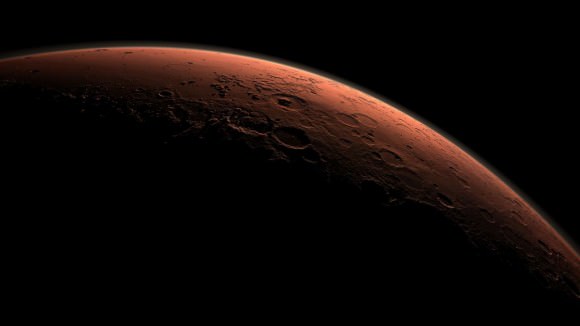
But other equally tantalizing sites were in contention, including Holden Crater, where a massive and catastrophic flood took place, and where ancient sediments lie exposed on the floor of the crater, ready for study. Or Mawrth Vallis, another site that suffered a massive flood, which exposed layers of clay minerals formed in the presence of water. With the money spent on tobacco in 2012 ($44 billion!) we could have had a top ten list of landing sites on Mars, and put a rover at each one.
Think of all that science.
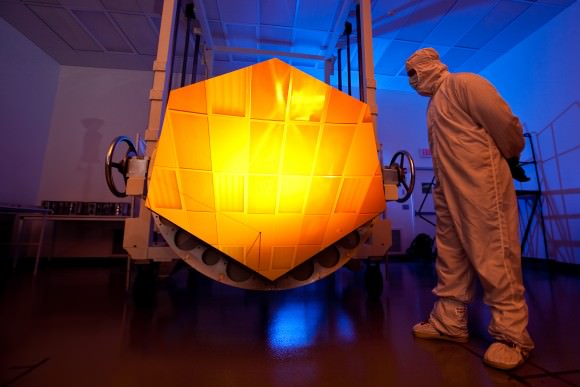
NASA’s budget is always a source of controversy, and that’s certainly true of another of NASA’s big projects: The James Webb Space Telescope (JWST.) Space enthusiasts are eagerly awaiting the launch of the JWST, planned for October 2018. The JWST will take up residence at the second Lagrange Point (L2,) where it will spend 5-10 years studying the formation of galaxies, stars, and planetary systems from the Big Bang until now. It will also investigate the potential for life in other solar systems.

Initially the JWST’s cost was set at $1.6 billion and it was supposed to launch in 2011. But now it’s set for October 2018, and its cost has grown to $8.8 billion. It sounds outrageous, almost $9 billion for a space telescope, and Congress considered scrapping the entire project. But what’s even more outrageous is that Americans are projected to spend over $50 billion on tobacco in 2018.
When people in the future look back at NASA and what it was able to accomplish in the latter half of the 20th century and the beginning of the 21st century, they’ll think two things: First, they’ll think how amazing it was that NASA did what it did. The Moon landings, the Shuttle program, the Hubble, Curiosity, and the James Webb.
Then, they’ll be saddened by how much more could’ve been done collectively, if so much money hadn’t been wasted on something as deadly as smoking.
(Note: All amounts are US Dollars.)


Not to mention some of that money invested in NASA actually returned some very useful inventions (like water filters, memory foam, hearing aids, etc) while the money invested in tobacco leads to further expenses in the health department – that makes the gap even wider!
That’s a great way to look at it. One problem with the logic is most of the money spent on cigarettes is actually taxes, and if no one bought cigarettes the taxes would have to come from somewhere else.
I think a better analogy I like to use is if you take the proportion of the GDP that NASA uses to an upper middle class income it comes out to about $300. So NASA is about the cost of a good digital camera or a television. A moderate luxury but something we can afford.
No, it is completely stoopid and totally improductive. Not one smoker will skip the next cigarette after having read that text. They’ll just feel alienated and hate NASA and its unwordly nerds, monks pretend-to-be, even more, after having felt lessoned by such tyrants who imagine themselves morally superior because of choice of private lifestyle. Just like in the religious wars of the medieval ages, it is such a BAD article!
For those who really go up there, Soyuz 7 launch escape, at 14-17g, in 1983:
“Upon being greeted by recovery crews, they immediately asked for cigarettes to steady their nerves. The cosmonauts were then given shots of vodka to help them relax.”
Well written wiki article
https://en.wikipedia.org/wiki/Soyuz_7K-ST_No._16L
Let us not forget the good the Space Program has created right here for everyone on Earth.
Almost all of our modern electronics including computers, cell phones, digital cameras and flat screen TVs came from the space program. Yes, we had television and phones before NASA, but in an effort to reduce size and weight for space missions, engineers had to figure out new ways of designing electronic devices. The tiny but powerful digital devices we hold in our hands are a direct result of research for the Space Program. No private companies could have afforded the research to create such electronic marvels until perhaps many decades later.
Not all humans will get excited about seeing pictures of planets and moons beamed back from across the solar system, but we all benefit in some manner by the joys of discovery the Space Program brings to humanity.
And how much money did we spend on weapons in those same time periods? Compare that to how much we spent on public welfare and education? How much of the US budget does NASA consume? 0.5%! ($17.5 Billion) The military got 54% ($598.5 billion) of discretionary spending. In a perfect world those numbers would be reversed. Eden NOW!
Exactly! Warfare and the likes are a business!!! Until we fundamentally shift our thinking, and break away from industries which are toxic to our way of being, I doubt anything will change.
It’s fine to compare NASA to cigarettes, but they are vastly different from the public’s perspective. As a species we piss away a tremendous amount of resources and time on entertainment… besides pointless religious/ethnic warfare, nothing bothers me more than hearing about billion dollar stadiums being built in cities where the education system can barely operate, the streets are littered with homeless and mentally ill people, and yet a new football stadium is exactly what that city needs! Sorry but, when was the last time that any professional sport advanced our species closer to solving actual issues?! Riiiight.
On the second photo –
Image Credit: NASA?!?!?
There were exactly two people on the moon at that time . . . and one of them was in the photo.
Is it really that hard to figure out who took that photo and give the photographer credit?
It’s all about copyrights.
NASA is the paying entity, and as such, has legal rights to the photos taken by the astronauts and any other NASA employees while on the job. NASA, being a public tax funded government agency, is required to allow free use of its photographs (among other things) to the public it serves. Providing the legal photo credit to Neil Armstrong would have given the astronaut the legal rights to sell or perhaps not even release the photos he shot. Of course, NASA could have posted the credit as ‘taken by Neil Armstrong for NASA’, and everyone would be happy.
Worrying about the money we spend on space is utterly ridiculous. WE DO NOT send any money into space. All that money goes directly back into the US economy in the form of wages to the people who do the work and in the form of products made to be used.
That money is ALL in the American economy.
Even though comparing the space program with an addiction that is as tough to quit as any hardcore drug (cocaine etc) might sound fun …
The proper thing to do is to compare the costs for communication satelites, weather satelites, GPS etc (things that everyone directly understand) against the cost to use technology that would achieve something similiar but landbased.
And then, compare the savings with the science costs.
example: Back in the day, we would receive a telegram that my grand parents would be coming over for vacation instead of a simple long distance call. As a kid, i got shown the telegram with the words: look who is comming!
And now … I can read and post comments around the world.
That really beats a nicotine habbit as comparison.
This is just false equivalence. People can always pick spending on something that they and their particular group do not like – cigarettes, alcohol, Department of Defense, welfare (catchall term covering AFDC, TANF, SNAP, and other benefits), etc., and say “wouldn’t it be better if that were spent on NASA?” Since the readers of this column are almost entirely space enthusiasts, the answer will almost always be “YES!!!”
However, actually getting the money from one source of spending shifted over to NASA is either completely impossible and impractical (as with cigarettes, marijuana, etc.), or simply completely impractical (as with spending from other government programs). Whenever government programs are cut for the purpose of shifting the funding to other programs, the money usually does NOT end up getting shifted to the programs originally identified, and instead about TWICE the amount of spending that was cut ends up getting spent on the favorite pork barrel programs of influential members of both houses of Congress.
In short, articles like this may make us feel good, and reiterate that more money should be spent on space than is being spent now, but aside from the “warm fuzzies”, no practical purpose is served by this sort of article.
Tobacco is a great way of the government earning money to spend on things like the space programme.
Please don’t be preachy. I like to smoke and and I don’t like people telling me how to live my life. Thanks.
I think you would have had more sympathy for the article by comparing NASA’s budget to say… how much is spent on advertising for the US President. Billions spent on George W. Was that money well spent? Well from this side of the pond it looked like billions spent on a sick joke that made the USA look thourghly stupid to the rest of the world. Still it was your tax dollars (and ours by supporting you) wasted on a stupid and unnecessary war.
If government illegalized movies and computer games, but still forced you to pay for them in order to finance political program X, wouldn’t that make you happy?
Well, probably not, but that is as far as the unreal space advocates get when they put human instinct and pleasure opposite to their abstract dreams. That won’t work, and it hasn’t. NASA budget does not correlate with the decreased number of smokers. As clever in physics, as stupid in politics/sociology. At least realize this your mental deficit and try to adapt to it!
The argument should be that we should go to the Moon or to Mars or to empty Nowhere, because there we might grow even better tobacco, or other grass, to smoke at our pleasure!
What else is it all good for? Putting stone upon stone as in some ancient pyramid? Human subjective values are necessary to make space exploration meaningful. And smoking is one of them fundamental stones. Go figure, but so it is. Maybe ancient human cave dwellers inhaled smoke from the fire which kept them alive, and noticed that different grass caused different effects. Smoking pot might HAVE BEEN near the begining of science and philosophy. (But no longer! Humanity has been there, done that, nothing more to see, smoking won’t make anyone a filosofer today).
But if government illegalized movies and computer games, but still forced you to pay for them in order to finance political program X, wouldn’t that make you happy?
Well, probably not, but that is as far as the unreal space advocates get when they put human instinct and pleasure opposite to their abstract dreams. That won’t work, and it hasn’t. As clever in physics, as stupid in politics/sociology. At least realize this mental deficit and try to adapt to it!
I don’t get it.
How can you know what people in the future will be thinking?
You may think that the role of government is to take people’s money and throw it into space. Others don’t.
People freely choose to smoke. Ok with me.
I vote no on space. Not ok with me.
You’re probably just trolling, but I’ll bite.
First, let me point out that those people who “freely choose to smoke” (I’m an ex-smoker myself) have collectively cost this country billions of TAX dollars to cover their health care costs–and lets not forget about the health costs to people AROUND them. (This was true before “Obamacare”, by the way.)
Then I’ll point out that you should probably turn off your computer and throw it out the window, since it almost certainly wouldn’t exist without the advances that were only made possible because of the space program and other basic science research that’s been paid for by (*gasp*) TAXES.
I’m afraid you are wrong.
Ask yourself this question. Why have governments, yours and here in the UK been reluctant to bring in anti smoking legislation?
The answer is because the net tax contribution is positive, including healthcare, we have the NHS here, which provides better and substantially more care than you currently have in the US and yet the answer is still positive. The main reason is smokers die younger so they don’t draw as much pension as non smokers. Check out pension annuity rates for smokers and non smokers you’ll find you get more return as a smoker than not.
Except for a few thousand dollars worth of raw materials actually burnt up or launched, the money spent on space exploration doesn’t disappear, it is spent on wages, etc to turn those raw materials into rocket fuel and space hardware and to support that endeavour.
Money well spent “if you ask me” .
We must not forget, smoking is a choice by a free people to make for themselves. Taxes are FORCED upon people. Many are needed, some are not. To force people to pay for another program they may, or may not want, rings a bit like socialism. If a person earning $40,000 a year wants to have a cigarette, that’s his choice. Forcing him to pay taxes to support a scientist making 4x that, is not on par with a constitutional republic.
The space program is a choice made by a free people (collectively, though our duly elected officials–that’s what it means to be a “republic”.) Taxes are simply how we have decided to pay for it.
It would be much harder to make the same argument for second-hand smoke is, if you ask me.
THANK YOU, PLUGHEAD!!!!!!
Well then plughead, if that’s the case, since obesity kills more people each year than does smoking and car crashes combined, would you support an 85% tax on Big-Macs?
Probably. Always been more of a Whopper fan, myself…
Seriously, I doubt that extreme taxation is the solution for obesity (or anything really), but a smaller tax ear-marked for food and education programs might help.
Not sure what any of this has to do with the space program…
It has as much to do with the space program as say……..cigarettes. As I’ve believed all along, it’s just another talking point for the anti-smoking crusaders. The truth is, if all smokers quit smoking today, many children’s hospitals would be closed tomorrow. As many healthcare facilities are funded by the sale of tobacco.
And in my opinion of course, WW2 has done more to further technology of mankind than the space program has done. Some good, some bad.
Forcing people to pretend to love space?
Like Orwell’s 1984.
I think that violence is the wrong way to go. I agree fully with you on that. If people don’t want to go to space, they won’t go to space. It is a mental defunction to imagine that all apes, who look somewhat like yourself, have similar ambitions as you do, should thus be collectively taxed. That’s tyranny! Some of them might aspire to something even more fantastic. This is humanity, pure biology.
What is the idea here? Stop eating burgers to instead discover the final secret of the Universe? It’s ridiculous!